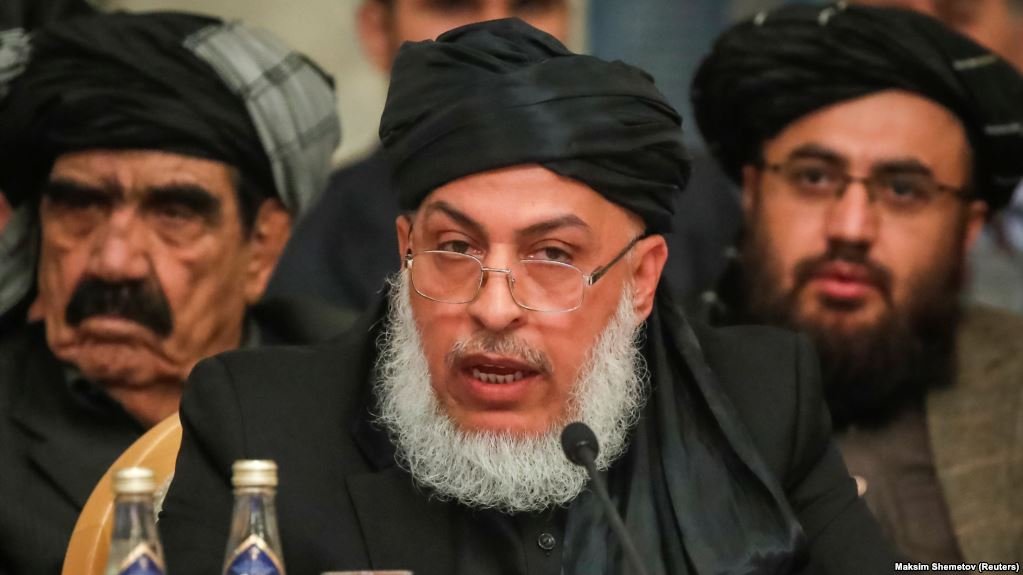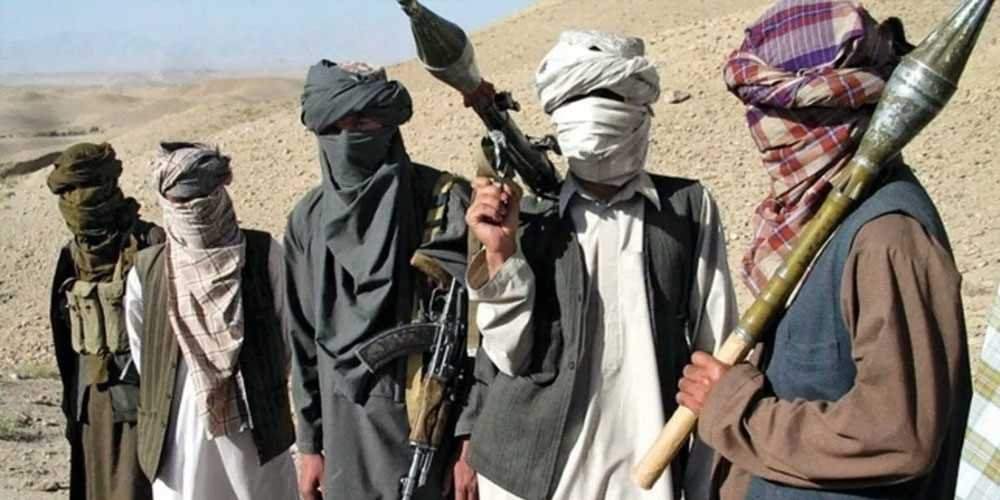ISLAMABAD

The Afghan Taliban militant group has called off planned peace talks in Pakistan, saying that most of the members of its negotiating team are unable to travel because they are subject to US and UN sanctions.
The statement was issued on February 17 — a day before the militant group was scheduled to arrive in Islamabad to meet with Prime Minister Imran Khan and possibly US officials.
The announcement came hours after Afghanistan issued a protest to the UN Security Council over the planned visit.
In a letter to the Security Council, the Afghan UN mission wrote that the Taliban-Pakistan meeting “constitutes a violation of the national sovereignty of Afghanistan.”
“These engagements, which are taking place under the pretext of support for peace efforts in Afghanistan, are void of any degree of coordination and consultation with the government of Afghanistan,” it said.
‘Legitimization of an armed group’
The letter said that an invitation from Khan for a Taliban delegation to travel to Pakistan for talks “amounts to the official recognition and legitimization of an armed-group that poses a serious threat to the security and stability of Afghanistan, and whose members are sanctioned by provisions of the UN Security Council’s 1988 Committee’s Sanctions Regime.”
The Taliban have a political office in Doha, the capital of Qatar, where the negotiating team members live. However, the team includes at least five former inmates of the U.S. prison at Guantanamo Bay and others linked to Afghan militant groups.
On February 7, the Afghan government issued a similar protest to the Security Council regarding a trip by Taliban members to Moscow for Russia-backed peace talks, charging that the Kremlin was allowing sanctioned individuals to enter the country for the session.
The Taliban trip to Pakistan would have coincided with a two-day visit to the South Asian country by powerful Saudi Crown Prince Muhammad bin Salman, who arrived on February 17.
In the February 14 announcement about the planned session in Pakistan, the Taliban also said its negotiators would meet with US officials. The US had not commented on a potential meeting in Islamabad.
Tensions running high
As an important player in the region and an Afghan neighbour, Pakistan is seen as potentially having a key role in any settlement.
But tensions run high between Afghanistan and Pakistan.
Kabul and Washington have accused Islamabad of providing safe havens for terrorists on its territory, allowing them to cross the border into Afghanistan and attack government troops and Western forces. Pakistan denies the allegations.
The discussions in Islamabad would have come a week before previously scheduled February 25 talks in Qatar between US officials and Taliban negotiators.
Talks between US officials — including Zalmay Khalilzad, the special peace envoy for Afghanistan — have intensified in recent months.
Khalilzad and Taliban negotiators have both said progress has been made, but US officials caution that much work needs to be done before an agreement can be finalized.
The US-Taliban talks are aimed at finding a negotiated end to Afghanistan’s 17-year war.
The United States has been attempting to bring the Taliban to the negotiating table with officials in Kabul.
The Afghan government has been absent from the US-Taliban talks, prompting anger and frustration in Kabul. The Taliban considers the Kabul government to be a Western puppet and has so far refused to directly negotiate with it.
US troops have been in Afghanistan since an October 2001 invasion that brought down the Taliban government after it refused to hand over Al-Qaeda extremists, including Osama bin Laden, blamed for launching September 11, 2001, attacks in the United States.
Both Islamabad and Washington officially never confirmed the talks after Taliban last week announced that their team would be visiting Pakistan on February 18.
The Taliban also said their team would meet PM Khan.
The Taliban confirmed the postponement of the Islamabad talks but blamed travel restriction imposed by the US and the UN on some of their negotiating team’s members as the main reason.
But some sources said the cancellation of talks was linked to the concerns expressed by the Afghan government.
Former Afghan president Hamid Karzai publically opposed the idea of Pakistan hosting the next round of talks between US and Taliban.
When contacted, a senior official here said Pakistan had never at first place confirmed such talks, therefore there was “no point in commenting” on the subject.
Taliban’s reason for the cancellation of talks is not seen as genuine given the fact that their negotiating team has recently traveled to Russia, the United Arab Emirates, and Qatar.
But some observers are of the view that since the Taliban have recently announced a new 14-member team for talks with the US, there is a possibility that some of them were unable to travel.
The new team announced by Mullah Abdul Ghani Baradar includes the younger brother of Mullah Umar as well as members from Haqqani network.
Anas Haqqani, the younger brother of Sirajuddin Haqqani, is part of the Taliban negotiating team. However, he was in US custody and the Taliban have been demanding his release.
With the postponement of talks in Islamabad, Taliban and US officials are now expected to meet in Doha on February 25.
Last month, the two sides held marathon talks in Doha. Discussions primarily focused on US troops’ withdrawal and assurances that Afghan soil would never be used again by any terrorist organisation.
Both the Taliban and the US cited progress in their talks. But the major sticking point regarding the inclusion of the Afghan government in the talks is yet to be sorted out.—Agencies

The High Asia Herald is a member of High Asia Media Group — a window to High Asia and Central Asia

